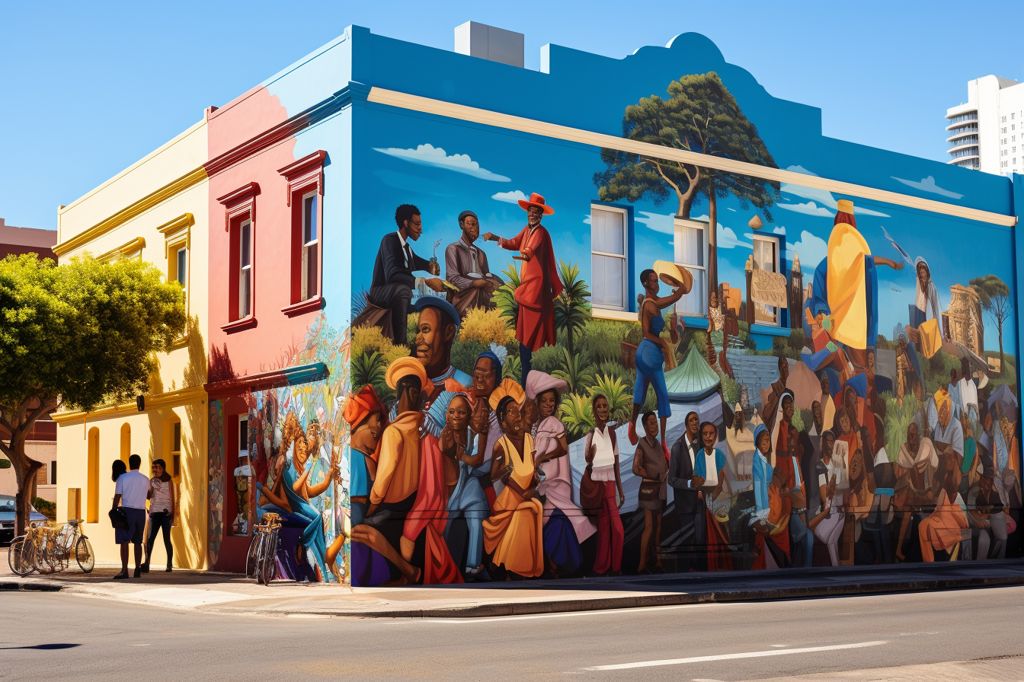The GIA funding initiative in Cape Town demonstrates the crucial role arts play in community upliftment, promoting diversity, respect, and appreciation for the arts, and ultimately contributing to the city’s flourishing artistic ecosystem.
Often considered as living and breathing entities, cities possess unique narratives shaped by their inhabitants, structures, and events. Central to these narratives are the arts, culture, and heritage that define a city’s identity and spur community engagement. Cape Town, with its abundant cultural history and diverse artistic expressions, stands as a prime example. As a result, the city’s Social Development and Early Childhood Development Department is now inviting applications for Grants-in-Aid (GIA) funding through its Arts and Culture Branch, aiming to tap into the transformative capabilities of arts and culture.
Cultivating Hope through Sustainable Cultural Development
The GIA funding is designed to cultivate hope by promoting sustainable cultural development, considering the cultural, social, economic, and environmental facets of artistic projects. By concentrating on projects and programs for young people (aged seven to 35) and vulnerable groups such as women, children, elderly individuals, and those with disabilities, the initiative strives to inspire appreciation for the arts while nurturing creativity and preserving heritage.
Bridging the Gap between Art and Wellbeing
Acknowledging the therapeutic benefits of arts in bolstering social wellbeing, the GIA funding application process aims to connect art and wellness for individuals, families, and communities. Integrating arts, culture, and creative activities, the initiative seeks to help vulnerable groups overcome stress, trauma, and disability, thereby enhancing cognition, emotions, and overall wellbeing. The funding categories encompass visual and performing arts, temporary public art, heritage awareness and storytelling, and therapeutic interventions.
How to Apply for Funding
Applicants must follow the City’s guidelines, including using the official application form available at www.capetown.gov.za/grants-in-aid. Completed applications can be submitted physically to the Arts and Culture Branch or electronically to artsand.culture@capetown.gov.za. It is essential for applicants to review the Grants-in-Aid Policy thoroughly and ensure their projects comply with the specified requirements. The submission deadline is 17:00 on 28 October 2023, and projects must be completed by 31 December 2024.
Enhancing Education and Expanding Opportunities
Through GIA funding, Cape Town is investing in education and generating opportunities for young artists to establish careers. Councillor Patricia Van der Ross, Mayoral Committee Member for Community Services and Health, underscores the significance of these projects in promoting diversity, respect, and appreciation for the arts. Additionally, the funding facilitates the creation of platforms and artistic stages, enabling young people to fulfill their dreams and established artists to share knowledge and skills.
Fostering Dreams and Honoring Heritage
The GIA funding initiative not only cultivates the creative talents of Cape Town’s youth and empowers its vulnerable populations, but also cherishes the city’s rich cultural heritage. By allocating resources to arts and culture, the City demonstrates its commitment to preserving Cape Town’s unique identity while advocating social cohesion and inclusivity. The funding enables artists to share their stories and talents, ultimately contributing to the city’s flourishing artistic ecosystem.
The Impact of Arts in Constructing a City of Hope
Recognizing the arts as a means for social development and healing, the GIA funding initiative reemphasizes the crucial role arts play in community upliftment. By offering a diverse range of cultural projects and programs to Cape Town’s residents, the City is nurturing an environment where creativity thrives, and artistic expression is valued. In essence, the arts serve as a bridge, connecting individuals and communities while fostering empathy, understanding, and unity.
The Grants-in-Aid funding initiative in Cape Town presents an opportunity for the city’s artistic community to unite as architects of hope, using their talents to create a vibrant, inclusive, and inspiring urban landscape. Through the transformative power of arts and culture, Cape Town’s rich heritage and creative future will continue to thrive, benefiting both its residents and future generations.
1. What is the GIA funding initiative in Cape Town?
The GIA funding initiative in Cape Town is a program that aims to tap into the transformative capabilities of arts and culture, promoting sustainable cultural development, and contributing to the city’s flourishing artistic ecosystem.
2. What is the target audience for the GIA funding initiative?
The GIA funding initiative is focused on projects and programs for young people (aged seven to 35) and vulnerable groups such as women, children, elderly individuals, and those with disabilities.
3. What are the funding categories included in the GIA funding initiative?
The funding categories included in the GIA funding initiative are visual and performing arts, temporary public art, heritage awareness and storytelling, and therapeutic interventions.
4. Where can applicants access the official application form for the GIA funding initiative?
Applicants can access the official application form for the GIA funding initiative at www.capetown.gov.za/grants-in-aid.
5. What is the submission deadline for applications for the GIA funding initiative?
The submission deadline for applications for the GIA funding initiative is 17:00 on 28 October 2023.
6. What is the focus of the GIA funding initiative in terms of education and opportunities for young artists?
The GIA funding initiative is aimed at investing in education and generating opportunities for young artists to establish careers, promoting diversity, respect, and appreciation for the arts.
7. How does the GIA funding initiative honor Cape Town’s rich cultural heritage?
The GIA funding initiative honors Cape Town’s rich cultural heritage by allocating resources to arts and culture, preserving the city’s unique identity, and advocating social cohesion and inclusivity.
8. What is the impact of the GIA funding initiative on community upliftment?
The GIA funding initiative plays a crucial role in community upliftment by offering a diverse range of cultural projects and programs to Cape Town’s residents, fostering empathy, understanding, and unity, and contributing to social development and healing.








